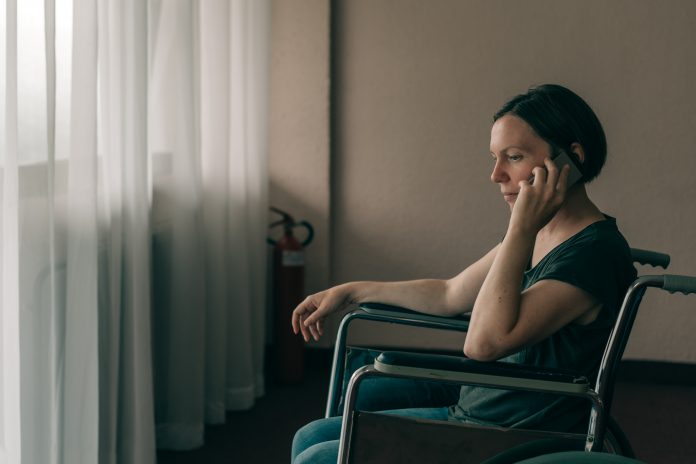A new study in the US shows that people with disabilities view healthcare as a human right and believe that this perspective does translate to policy-makers
University of Kansas researchers looked into how individuals with disabilities reflect on healthcare policy. The study, published in the Journal of Disability & Policy Studies, was co-written by Smith; Jean Hall, professor of applied behavioural science and director of KU’s Institute for Health & Disability Policy Studies, and Noelle Kurth, senior research assistant at the institute.
Currently, 61 million adults in the United States are living with a disability. That is one in four Americans. Though people with disabilities should not have to make up a significant amount of the voting population to be considered by politicians, the fact is that this community are prominent and still ignored.
“I hear politicians on the TV talking about me as if I am the cause of the budget deficit,” one respondent said.
“They seem to lump us into a group of people–well, not people: ‘You’re the budget deficit, you’re this, you’re that,’ instead of saying, ‘These are people who need care.’ Maybe the number one thing, then, is an attitude change.
“You’re not dealing with line items on a budget; you’re dealing with what real people need.”
Scholars analysed data from 35 phone interviews and survey responses from more than 475 individuals with disabilities. While the respondents largely reflect the political opinions of American society at large, they tended to agree that healthcare should be viewed as a human right.
Their message to officials who write health policy in the US is based on the social exclusion and stigma that they deal with.
“We found that people with disabilities are marginalized and stigmatized and that policymakers don’t listen to them,” said Sarah Smith, a doctoral candidate in sociology, graduate research assistant at KU and lead author of the study.
“They also felt that access to health insurance was important in order to be able to take part in society and that policymakers did not consider how the policies they make affected their lives.”
Ability to work is influenced by available healthcare
“Employment is a key component of being part of society and a big part of personal identity,” Smith said.
“But it can be very hard to access, and most health insurance is tied to employment, which also makes insurance difficult to access, especially if you’re not employed full time.”
Respondents nearly uniformly reported how important employment was to their lives in terms of financial security, access to health insurance, not depending on state programs for health coverage and for personal dignity. However, they also faced many barriers to employment, especially those living in states that have not expanded Medicaid who tend to lose eligibility when they are employed.
Opinions on the Affordable Care Act?
The study’s participants also expressed generally in favour opinions about the Affordable Care Act. Many reported that they still struggled with healthcare costs but were atleast able to get health insurance through the act. The law’s health insurance premium subsidies, coverage for pre-existing conditions and Medicaid expansion were important to people with disabilities.
“Policymakers already know that restricting access to health care has outcomes that range from loss of income to loss of life,” one participant said.
“True access means that all citizens, regardless of their ability to pay, have access to the same range of services. Like water and an unpolluted environment, health services are essential to life, liberty and the pursuit of happiness.”
Currently, one in three adults with disabilities (18-44 years old) do not have a healthcare provider and have unmet health needs that are being put off due to financial worries. Currently, the COVID-19 pandemic has worsened the situation – people with disabilities are now highly vulnerable to coronavirus.
What next for people with disabilities?
Researchers have often proven that people with disabilities face barriers to having a political voice, reflecting the struggle they face to enjoy meaningful employment and be a part of society. Unsurprisingly, voices can get lost when health policy is being drafted – even though health policy is the most crucial element deciding if they will be able to live their lives.
Taken as a whole, the results show the connections among disability stigma, health policy and politics.
As key participants in programs such as Medicare, Medicaid and Social Security, the population can provide vital insight into the functioning and outcomes of those programmes. As America’s population ages and the COVID-19 pandemic affects more people’s long-term health, new complications to healthcare access can be expected, which the authors plan to address in future research.











